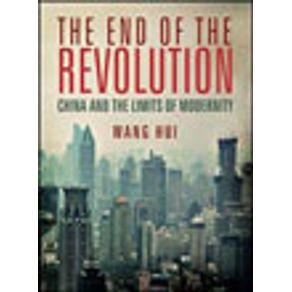China finds itself on the verge of becoming the next great superpower, yet its breakneck industrialization and liberalization has not been without problems. Many of those problems, such as growing urban/rural and income disparities, will be easily recognizable to readers. Although Wang Hui does not advocate a return to authoritarianism, he is one of the few superstar-intellectuals of China that continues to oppose the wholesale adoption of neoliberal economics as the only viable future for the country. Against this background, he seeks to understand the present social and political predicament China finds itself in today, and in particular, he is interested in the significance of the reforms that occurred after 1989 and how these both precipitated and were a continuation of processes of mass depoliticization that had been occurring since the Mao era. While other scholars and policy advisers attempt to explain and rectify China's various social and economic problems from within these paradigms, Wang argues for a broader analysis that situates these events within a history of worldwide neo-liberal globalization. This, he claims, is necessary not only in seeking an alternative to the rapid industrialization and liberalization currently occurring in China but also in shedding its authoritarian socialist past.


